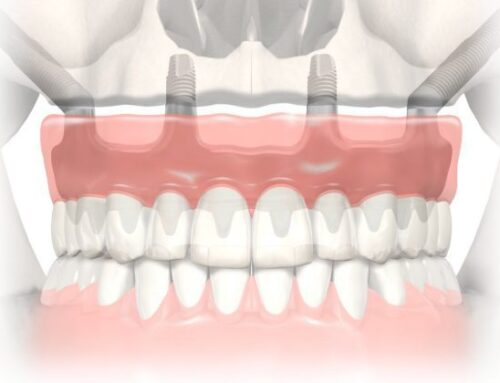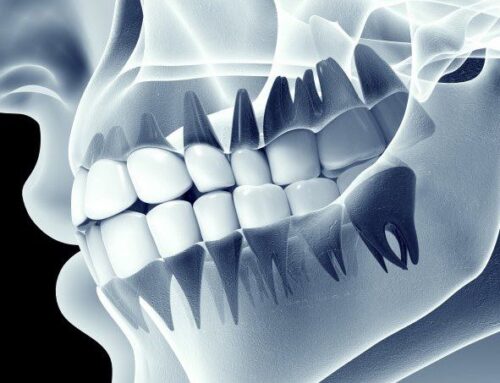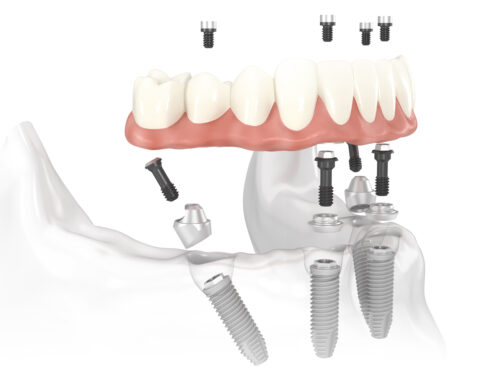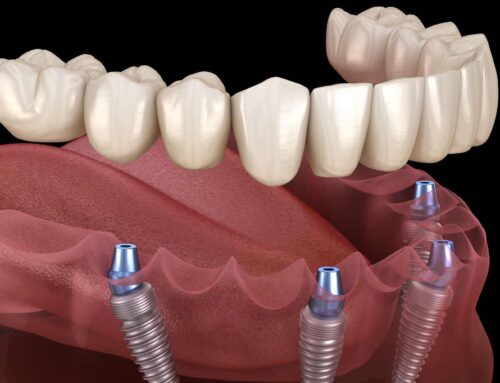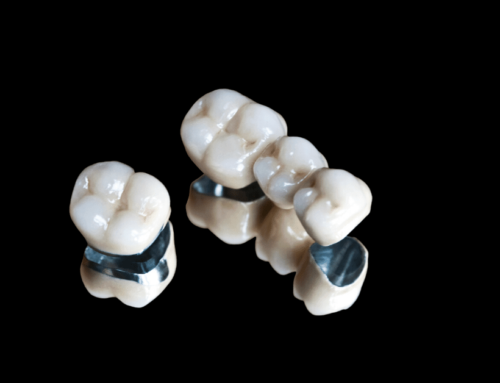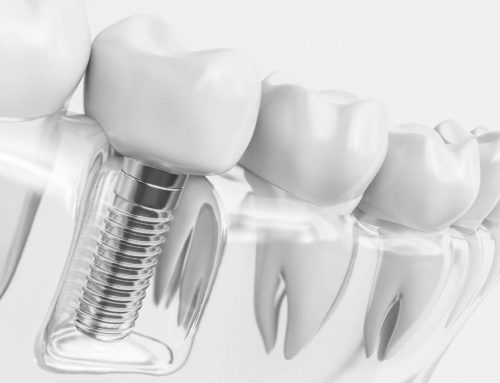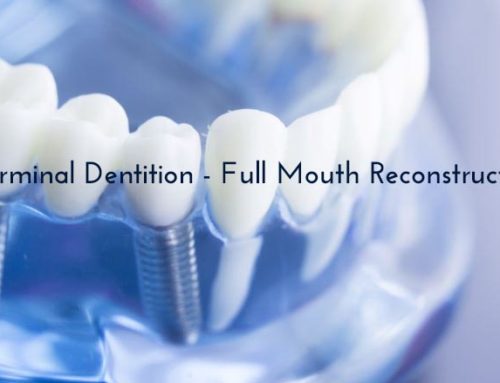Dental Crowns: All You Need to Know.
Did you know that teeth are the strongest part of a human body? And tooth enamel, the shiny, white substance that covers our teeth is even stronger than bones.
Yet, with the passage of time, even the strongest set of teeth experience wear and tear. There are several reasons behind this: like general tooth decay, damaged, cracked, or chipped teeth, or just overuse with time. Such problems can cause the teeth to change their shape and size. But like every problem comes with a solution, so does this one.
A Dental Crown is like a cap that protects a damaged tooth from additional damage. It is usually placed on top of the affected tooth, and serves to cover and protect it, while also restoring its shape and strength. Often, dental crowns are preferred when fillings are unable to completely solve dental problems. Or when you receive dental implants.
There are various types of dental crowns, and these can be made from a diverse range of materials, like metal and porcelain. They can be made according to the patient’s needs and other factors like strength, durability, and cost. Your dentist can advise you about available options for dental crowns and which type may meet your needs in the best way.
When And Why Should You Need a Dental Crown?
Dental crowns come in various shapes, sizes, and costs. But only a dentist can advise you about what kind of dental crown would suit you best and whether you need one or multiple dental crowns. Although, some common reasons why people need dental crowns are:
- To protect a decayed tooth from further damage
- To keep a cracked tooth from breaking
- To restore a chipped or a broken tooth
- To replace a tooth that has more filling than the tooth itself
- To cover a dental implant
- To support a dental bridge
- To improve the aesthetics of the teeth like color and shape
- To cover teeth that have undergone Root Canal Treatment
Procedure and Installation of Dental Crowns
Your dentist can opt for either a multi-day or a same-day procedure.
Multi-Day Procedure Involving a Temporary Crown: A traditional crown will require at least two visits to your dentist’s clinic. Usually, the following steps are taken:
- The damaged tooth that needs the crown is examined and prepared by your dentist. They will take X-rays of your tooth along with some impressions.
- The outer layer of the tooth is filed, and the damaged portion is removed.
- Then, an impression of your filed tooth and the surrounding teeth is created.
- A temporary crown is placed to protect your teeth until the permanent crown is available.
- The impression taken before is sent to a dental lab where the crown is made. This can take up to two to three weeks.
- When the new crown arrives, you will be required to visit your dentist again so they can permanently cement it in place.
Same-Day Procedure: In this process there is no such thing as a temporary crown. The stages are as follows:
- The first step is just like the traditional crown procedure: your dentist will first undo the damage done to your tooth by removing decay and reshaping it, so it can fit perfectly within the crown.
- Then they will take digital pictures of your tooth.
- These digital scans are then used to create a 3D model of the tooth. This model is further used by a machine to create a crown of ceramic.
- Finally, this crown is cemented on to your tooth by the dentist.
This process of creating a dental crown is known as CAD/CAM which stands for Computer-Aided Design/Computer-Aided Manufacturing. The entire process can take somewhere between two to four hours to complete.
Onlays And 3/4 Crowns
Some crowns don’t cover the entire tooth, instead just a portion of it. If your tooth structure is still strong, you might not need the whole crown but only an onlay or a ¾ crown.
Types of Dental Crowns
Various kinds of materials can be used to make permanent dental crowns. The different kinds of dental crowns are:
Metal Crowns:
Gold, Palladium, Nickel, and Chromium are just some of the metals that can be used to make dental crowns. Metal crowns are known to last the longest and don’t wear and tear easily. They don’t require a huge portion of your natural tooth to be removed. Metallic crowns are also capable of enduring tough activities like biting and chewing on hard foods. The main disadvantage of a metal crown is its metallic color. It can be spotted easily and stands out in a set of normal white teeth. Thus, these types of crowns are best suited for posterior restorations.
Porcelain Fused-to-Metal Crowns (PFM):
Porcelain fused-to-metal (PFM) crowns look more natural and can be customised to look like surrounding teeth. However, the metallic base supporting these crowns can be visible at the gumline. They are strong because of the metallic base and aesthetically pleasing because the crown is made from porcelain. But for those who have a habit of clenching their teeth, this type of crown can wear down the teeth opposing it, especially the ones that come in contact with the crown.
Zirconia Crowns:
Zirconium is a new kind of element that integrates both strength and aesthetics within a dental crown. Layered Zirconia and High Translucent Zirconia are quite popular with patients nowadays. Zirconia crowns are strong and durable. Their installment procedure is relatively less time consuming as they can be molded by a dentist in the clinic itself. In addition to that, they are biocompatible, which means they don’t cause any allergic reactions. Yet, zirconia crowns are so strong that their strength can wear down opposing teeth easily.
All-Ceramic Or All-Porcelain Crowns:
In terms of aesthetics and natural looks, these types of dental crowns are the best. If you have any metal allergies, all-ceramic crowns or all-porcelain crowns should be a good choice as they are biocompatible. Although, their strength and durability aren’t as high as porcelain-fused-to-metal crowns, to ensure that they last long, it is important to take good care of them. Also, if you suffer from bruxism, all-porcelain crowns aren’t the best option, so you should instead go for a Gold or PFM crown.
E- MAX: Lithium Disilicate Crowns:
An E-max crown is the latest innovation in dental crowns, is extremely durable and highly aesthetic. It is made from lithium disilicate ceramic, a material that is known for its translucent color and durability. These last longer than any other kind of dental crown and look exactly like natural teeth. E-max crowns are the best in the market right now, although they are a bit pricey. For a dental crown, an E-max has it all: quality, durability, strength, and the natural look, so the price is also worth it.
When your dentist is choosing material for your crown, they will also consider factors like:
- The location of your tooth.
- How much portion of that tooth will be visible when you smile?
- What kind of functions does the tooth perform?
- What is the position of your gum tissue?
- How much natural tooth will remain?
- What is the color of the adjoining teeth?
Problems That Can Develop with a Dental Crown:
Dental crowns are a great solution when it comes to solving certain problems with the teeth. But even they don’t come without complications. Some issues you might face after a dental crown are:
Pain and Sensitivity:
Dental crowns, just after placement are often sensitive to hot/cold foods and drinks. Slight sensitivity is normal if the crowned tooth still has a nerve inside. Your dentist will recommend that you use a toothpaste for sensitivity. But if biting down on food aggravates the sensitivity, then you should contact your dentist as there might be a problem with the placement of the crown. This is usually correctable.
Chipped Crown:
Porcelain crowns are vulnerable to chipping. Small chips can be amended but larger chips would mean crown replacement.
Loose crown:
If the cement holding the crown in place has washed out, the crown will loosen up. You should reach out to your dentist if this happens as bacteria could decay and damage the existing tooth furthermore.
Allergic reaction:
You may be allergic to the metal or porcelain used in your dental crown. Allergic reactions to dental crowns are rare, but if they happen, you should consult your dentist.
Dental Crowns: Takeaway
Your options are endless when it comes to choosing a dental crown. But no matter what your choices may be, you should consider what’s best according to your needs. Georgian Dental’s team of experts will advise you about the best type of dental crown that will suit you and your dental needs. Book your no-obligation consultation regarding dental crowns today and let’s talk about what’s best for you.
Free Initial Consultation
Free consultations for all dental implants, bridges & crowns, braces, gum recession and full mouth reconstructions ($300 Value).
Contact us to book your appointment today.

